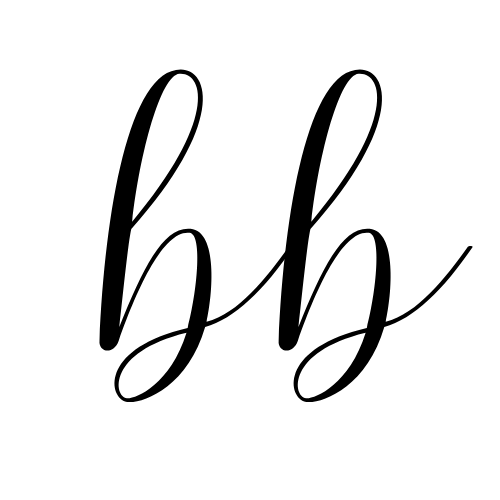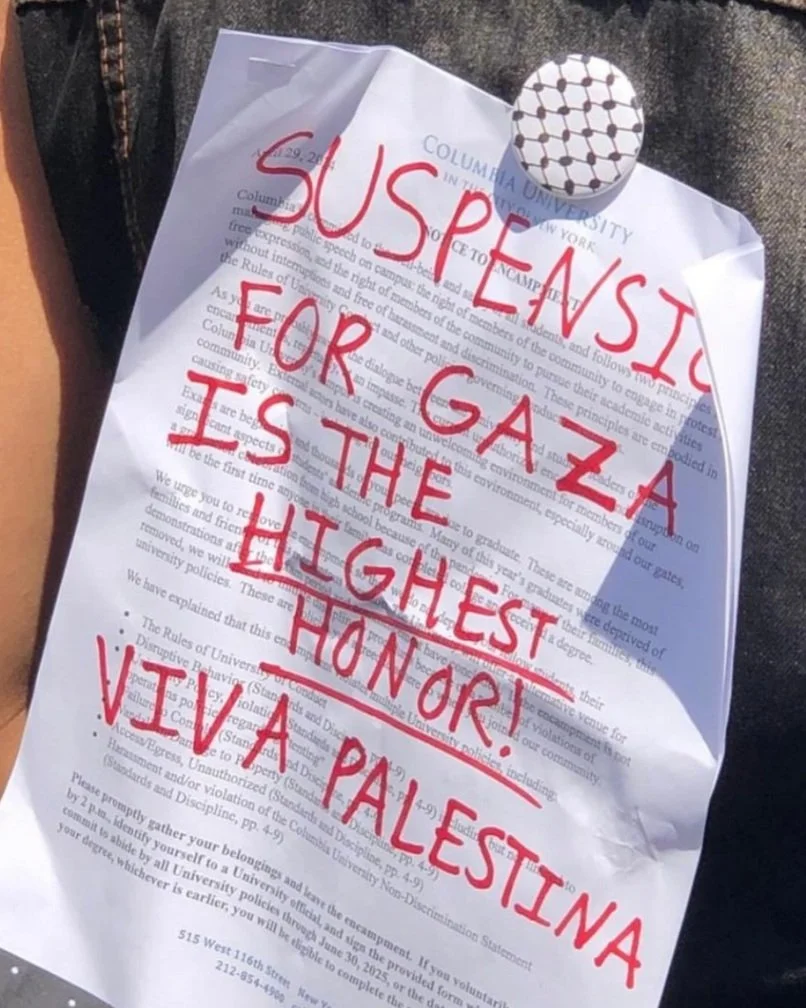America’s Student Protests Are Part of a Far Larger Anti-War Movement
The student intifada is under attack because it threatens the power structure, and attempting to silence it will only fuel it.
It was almost five years ago when I first heard drums and loud anti-sectarian chants right outside my classroom door. Still an undergraduate at the American University of Beirut (AUB) at the time, Lebanon’s October revolution in 2019 prompted a huge student movement across college campuses that raised the slogans of secularism, democracy, and social justice in the face of the corrupt militia system that has been governing our country for decades.
Before we knew it, independent students started leveraging the growing resentment towards sectarian political representation in Lebanon to organize both on and off campus, which led them to emerge as new political players on a national scale. For the first time in my life, I felt like I was a part of something much bigger than me, bigger than all of us. With every march through the streets of Beirut, shoulder to shoulder, the uprising served as a testament to the power of student movements in effecting change on a national level.
As I follow the student protests unfolding today across America in response to the atrocities in Gaza, I am not only reminded of my own experiences in Beirut and filled with so much hope, but I’m also very eagerly anticipating a domino effect that will inspire a global anti-war sentiment, collective awareness, and a revolution on a much wider global scale. These protests threaten the entire power structure, and that’s why they are under so much scrutiny and attack.
Amid atrocity, students across Columbia, Yale, Princeton, University of Pittsburgh, and many more campuses, are demanding that enough is enough, and saying that the horror in Gaza requires more urgency than patiently waiting to vote in the next election. They have launched rallies, sit-ins, hunger strikes, and encampments against the genocide in Gaza. They are demanding that their schools financially divest from Israel. Student activists say that companies doing business in or with the nation of Israel are complicit in its genocide in Gaza, and so are the colleges that invest in those companies.
Besides the obvious reasons, I think I speak for most, if not all Arabs when I say that we never thought we would get to see such radical pro-Palestine sentiment across America in our lifetime. Not only on the grounds of Israel’s strongest allies, but also across the prominent college campuses, where the next generation of leaders are born. For decades, the 'special relationship' has enabled the U.S.’s unconditional support and funding of Israel, and the overwhelming normalization of the Zionist narrative within American society. When Biden was a member of the US Senate Committee on Foreign Relations, he bluntly explained that “Were there not an Israel, the United States of America would have to invent an Israel to protect her interest in the region.” His comments make clear that the U.S. and Israel's “bond” was never about defending democracy, it has always been, and still is, about American imperial interests in the Middle East. So, you can probably see why Arabs have long lost faith in the West’s foreign policy in the Middle East. No “American Dream” will ever sponsor hope in the region.
While previous generations may have been mass indoctrinated by mass media propaganda, our generation is slowly but surely learning how to utilize new media to expose Israel’s crimes. Young Palestinian journalists and content creators have been key in bringing the realities of life in Gaza to the global stage. After months of frustration over the international community's lack of response to the atrocities they report, Bisan Owda, a Palestinian journalist residing in Gaza said in a video she posted two days ago that the student revolution inspired hope in her for the first time: “I’ve never felt hope like now, never.” She also emphasized that the movement's strength lies in its leadership by the youth, by the new generation that is vehemently challenging the status quo, and refusing to be complicit in the face of genocide.
Students are not only questioning zionist indoctrination, but weaponizing their privilege against the same system that gave them that privilege. Sure, they may be “a bunch of bored, rich students,” but what is another proper citizen response? At least these students are choosing to do something with their privilege instead of abusing their power with complacency and inaction. They are the offspring of generations who perpetuated white supremacy and colonial oppression, and they are now breaking the cycle by saying no. And let’s not forget that an overwhelming number of local, and international students with financial aid and loans are also risking everything to attend these protests and stand on the right side of history. I echo Bisan’s optimism and hope when seeing these bone chilling videos of students forming human circles to protect muslim students from police attacks while they pray, or students singing, dancing, and raising their Keffiyehs in the name of Palestinian liberation.
And yet, while the student protests and encampments have made their simple demands very clear, their efforts have been met by ill-informed critiques from politicians, mass suspensions, bans, and in many cases, police arrests and violence incited by university administrators. Instead of taking their money out of the apartheid and being transparent about where the students’ money goes, they cracked down on students, turned campuses into battlegrounds. And earlier today, Columbia President Minouche Shafik even issued a statement refusing calls to divest, despite the Israeli-tied investments being negligible in Columbia. This only exposes the modern institution of academia’s ties to the military-industrial complex that is controlled by the wealthy and powerful.
These student arrests evoke images of historical student protests against the Vietnam War or against South African apartheid. Although the recent protests have been peaceful, and have not gone nearly as far as the late 1960s and 1980s, one way they resemble their precedents is that they all escalated when universities have involved the police to break them up. In fact, when Columbia President invited the police which arrested 108 civilians, hundreds of encampments popped up around the country. Authoritarianism will only radicalize and make people angrier, and angry people are not afraid to organize and fight back.
Jill Stein, US presidential candidate, also explains that this increased police militarization on campuses to silence and control students are “very much connected with the Israeli Occupation Forces,” explaining that this attack on civil liberties is enabled by Israel’s training and transfer of military equipment to the U.S., which makes law enforcement even more dangerous for communities and students. It’s no doubt that the same system will reproduce and sustain itself to protect the U.S. imperial, capitalist world order.
I have always considered colleges and universities to be a microcosm of society at large, and what’s happening in America today clearly exposes the overarching power structure whereby the ruling class controls institutions in the form of billionaire donors and board members, and go to great lengths to protect their investments, even if it means refusing to support a genocide. The whole system has long always placed power and profit over human life and is fueled by violence and corruption.
But this nationwide student revolt, which has been dubbed by Palestinian student organizations in Gaza Strip as the “Student Intifada,” has given all of us so much hope because it is organically stemming from the belly of the beast. And it will create a ripple effect, across the entire world, as we’ve already been seeing.
I can hear our chants again from the streets of Beirut, loud and clear. I can vividly see the hope, determination, and solidarity in our eyes as we march the streets, shoulder to shoulder, demanding a brighter tomorrow. Power to all the students across the world who are renewing our faith in a brighter tomorrow. Our generation will start by freeing Palestine, then free the entire world.

